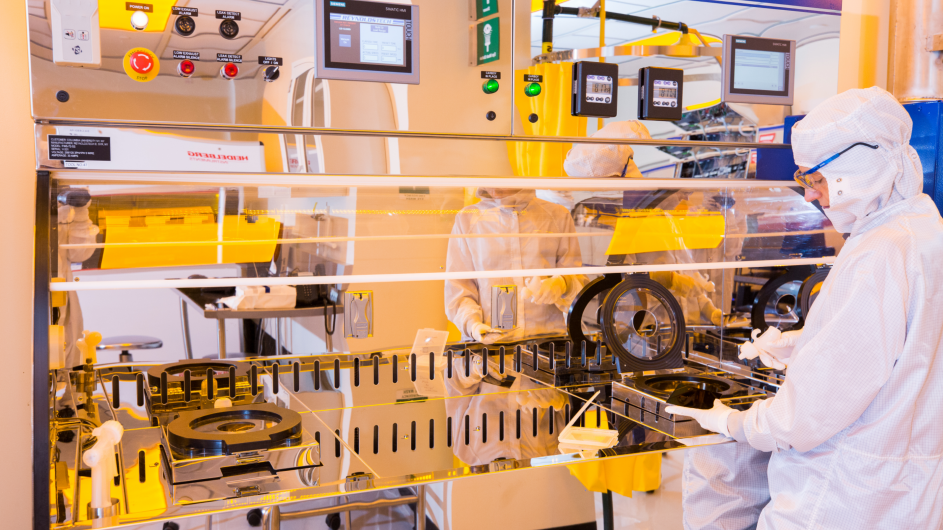Columbia Launches Startup Fellows Program to Extend Research Assets to Entrepreneurs

Columbia’s researchers have a long history of innovations that make it out of the lab and into the market to have a positive impact on the world. Now, a new program brings entrepreneurs to campus to develop innovative solutions to society's toughest problems alongside Columbia researchers. The Columbia Startup Fellows (CSF) program will allow early-stage startups to conduct product-oriented research and development in available campus labs, accelerating innovation in critical areas such as climate, energy, infrastructure, and materials.
“The Columbia Startup Fellows will leverage Columbia’s tremendous resources to accelerate startups as they bring their developments to address urgent societal needs, including those around sustainability and climate change,” said Mary C. Boyce, provost and professor of mechanical engineering. “As we bring emerging tech leaders together with preeminent scientists, engineers, and creators, the collaborations we enable will expand our real-world impact while strengthening Columbia’s entrepreneurial ecosystem.”
Related
“We are pleased to offer the university’s resources and expertise in this area where time is of the essence,” said Alex Halliday, founding dean of the Columbia Climate School. “Solving problems of this scale will require collaboration with academics and industry, and Columbia is happy to serve as the backdrop for that exchange of ideas.”
Within the parameters of a precisely defined scope of work and rigorous processes and governances, the Startup Fellows will be able to leverage Columbia’s specialized equipment and facilities to accelerate their solutions to climate and energy challenges faced by urban hubs like New York.
“Columbia Engineering has a long history of applying our faculty’s expertise to urgent climate-related challenges, including those requiring so-called tough tech innovations in areas like energy storage, energy conversion, and carbon capture, utilization, and storage,” said Shih-Fu Chang, interim dean of Columbia Engineering. “Embedding entrepreneurs in our labs will accelerate the technology translation process and inspire deeper collaboration, leading to discoveries that will help address the most pressing issue of our time.”
Columbia researchers with available equipment and facilities critical for tough tech startups are invited to apply to host an entrepreneur, who will work out of their lab for a year. Startups that have raised no more than $1 million in dilutive funding and are focused on climate and engineering are invited to learn more and apply here. The program is expected to kick off in January 2022, with the first cohort of Fellows starting on campus in early 2022.
Columbia University and Activate will leverage support from the New York State Energy Research and Development Authority (NYSERDA) to create a research, development, and commercialization hub and carbontech entrepreneurial fellowship program located in New York. Activate, a nonprofit entrepreneurial fellowship program, enables innovators in climate tech to leverage funding and research facilities to facilitate the rapid commercialization of climate solutions. Founded in 2015, Activate has supported more than 100 fellows in Berkeley, California, and Boston. Its New York fellowship community will utilize the CSF Program and Columbia’s state-of-the-art facilities and lab space for this new cohort.
“Every year we receive many strong applications from the New York region and we’ve been eager to bring the Activate Fellowship to New York’s vibrant startup community,” said Karin Lion, Activate’s chief growth officer. “Columbia and NYSERDA are the ideal partners to bring Activate’s entrepreneurial fellowship model to New York. Connecting Activate Fellows to Columbia’s rich network of researchers and laboratory resources will set them up for success and support the state’s carbontech development goals.”
The Columbia Startup Fellows program builds upon an already rich innovation ecosystem at Columbia. Each year, Columbia researchers produce approximately 400 inventions, which lead to over 100 license agreements and 20 to 30 new startup companies based on Columbia intellectual property.
“Startups based on Columbia’s research are making a huge difference in the world, in fields such as biotechnology, cybersecurity, energy storage, medical devices, and many other areas,” said Orin Herskowitz, executive director of Columbia Technology Ventures. “We look forward to extending these resources to Activate’s startups, so that they can have the best chance of success.”